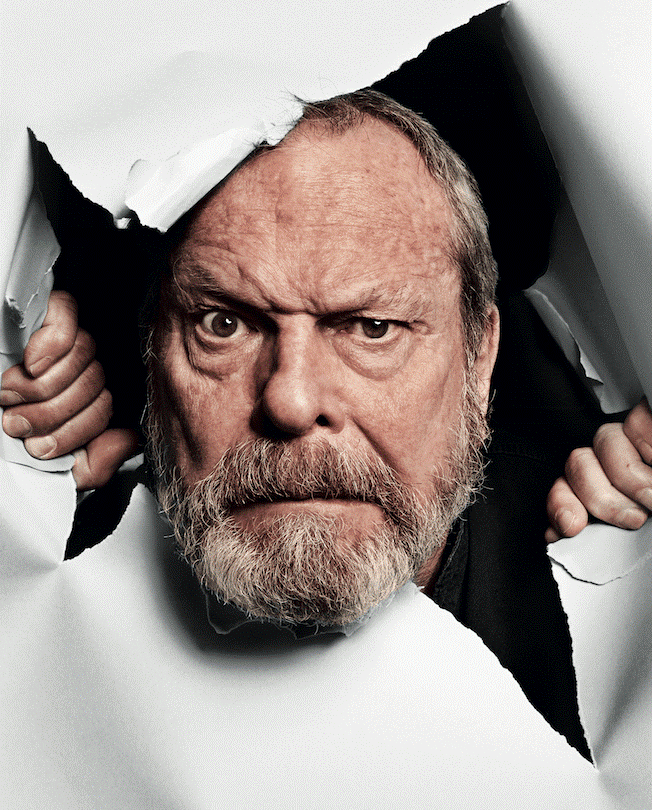The 29th edition of the Umbria Film Festival in Italy is underway, with its honorary president, Terry Gilliam, sharing insights into his illustrious career as a filmmaker, comedian, and provocateur. The festival, which runs through Sunday, features a special event titled “Becoming X into the Gilliamverse,” celebrating the 40th anniversary of Gilliam’s iconic dystopian sci-fi comedy, Brazil. The event will culminate in a live drawing session in Piazza San Francesco following the film’s screening.
Gilliam recently spoke to The Hollywood Reporter about the enduring relevance of Brazil, the challenges facing his upcoming film The Carnival at the End of Days, and the unexpected influence of former President Donald Trump on his work.
The Timelessness of ‘Brazil’
Reflecting on the 40-year milestone of Brazil, Gilliam expressed surprise at how the film’s themes remain pertinent today. “Clearly, I’m a prophet. Very simple!” he joked. “I just looked at [the future] back then, and I thought about what it was going to be like.” The film’s prescient depiction of bureaucratic dystopia continues to resonate, suggesting that societal concerns have persisted through decades.
Gilliam’s relationship with Hollywood has been a tumultuous journey, marked by both triumphs and setbacks. He recounted his initial success with Time Bandits, which was initially rejected by every studio but went on to become a box office hit. This success paved the way for Brazil, a project that would define his career and his complex relationship with Hollywood executives.
Hollywood Highs and Lows
Gilliam’s career has been a rollercoaster, with films like The Adventures of Baron Munchausen facing significant challenges. “It went completely chaotic,” he recalled, citing studio politics and management changes that led to the film being buried with a limited release. Despite these hurdles, Gilliam remains proud of his work, noting the enduring quality of his films when revisited in new formats.
Humor and satire have always been central to Gilliam’s work, yet he laments the current climate where irony seems to be fading. “I think Trump has changed things considerably,” he said, pointing to a cultural shift that has made people more cautious about humor. “There have been woke activists with a very narrow, self-righteous point of view,” he added, which has stifled comedic expression.
The Trump Effect on Creativity
Trump’s influence extends beyond cultural shifts, impacting Gilliam’s creative projects directly. His planned film, The Carnival at the End of Days, has been stalled due to the political climate. “He’s turned it upside down. So he’s killed my movie,” Gilliam lamented. The film, intended as a satire of recent years, now requires significant rewrites to remain relevant.
Despite these challenges, Gilliam remains hopeful about the project, which boasts a star-studded cast including Jeff Bridges, Johnny Depp, and Adam Driver. “You’d think everybody would be rushing forward to give me all the money I need,” he quipped, highlighting the difficulties of securing funding even with high-profile talent attached.
Legacy and Inspirations
Gilliam’s influence on filmmakers is well-documented, with directors like Quentin Tarantino citing him as an inspiration. Recalling his interaction with Tarantino at the Sundance Film Festival, Gilliam shared the advice he gave: “Be very clear about what you’re trying to do. Then you surround yourself with really good people, and then you listen to them.”
As for his own inspirations, Gilliam looks up to legendary directors like Fellini, Kubrick, and Kurosawa. “They were all filmmakers that constantly surprised me and made me think of things in a fresh and different way,” he said, emphasizing his desire to similarly challenge audiences.
The Umbria Film Festival and Personal Favorites
Gilliam’s involvement with the Umbria Film Festival is a testament to his love for the region and its community. Having bought a house in Umbria in 1990, he became increasingly involved with the festival, which he describes as “very, very familial.” The festival draws a diverse crowd, including many expatriates who gather annually for the event.
Before concluding his interview, Gilliam highlighted Tideland as a personal favorite that often gets overlooked. “It just seems to disturb a lot of people,” he said, describing it as a film that captures the imagination of a child in a unique way. Despite its divisive reception, Gilliam considers it one of his sweetest works.
As the festival continues, Gilliam remains a central figure, welcoming attendees and celebrating the art of filmmaking in the picturesque town of Montone. His reflections on past and future projects offer a window into the mind of a visionary artist navigating the ever-changing landscape of cinema.



































































